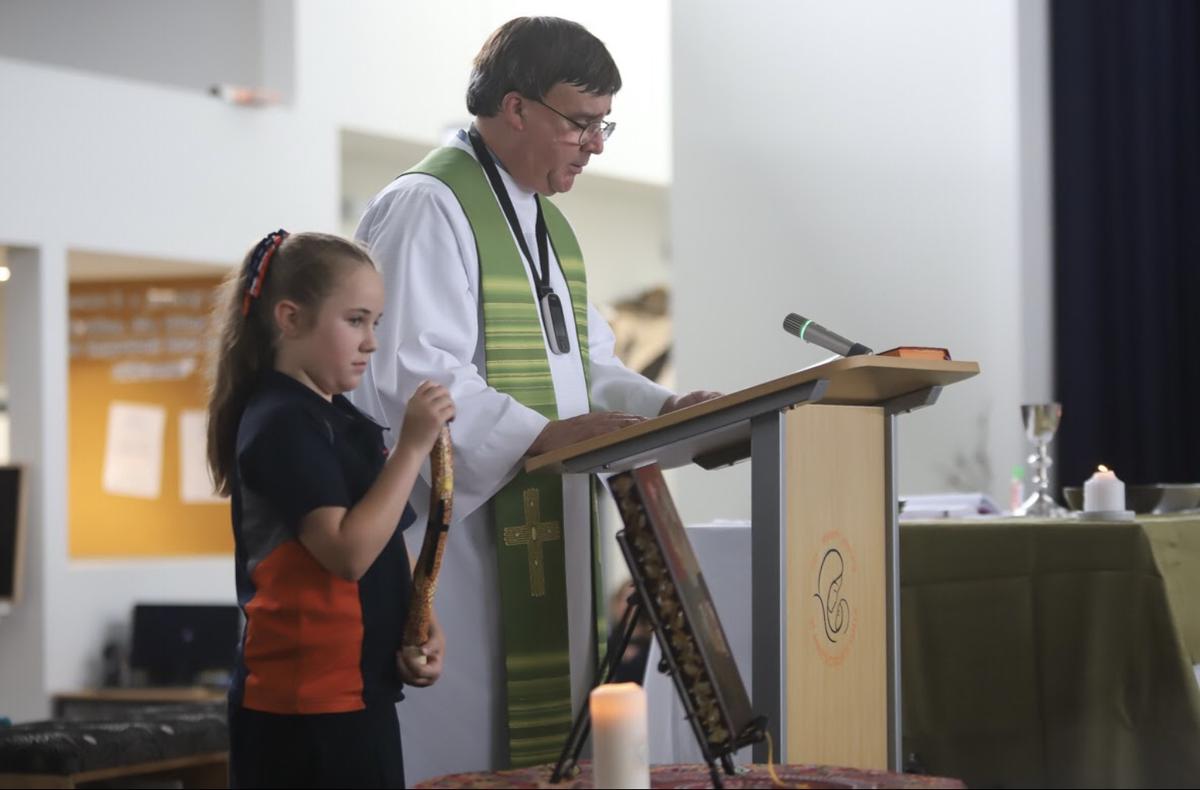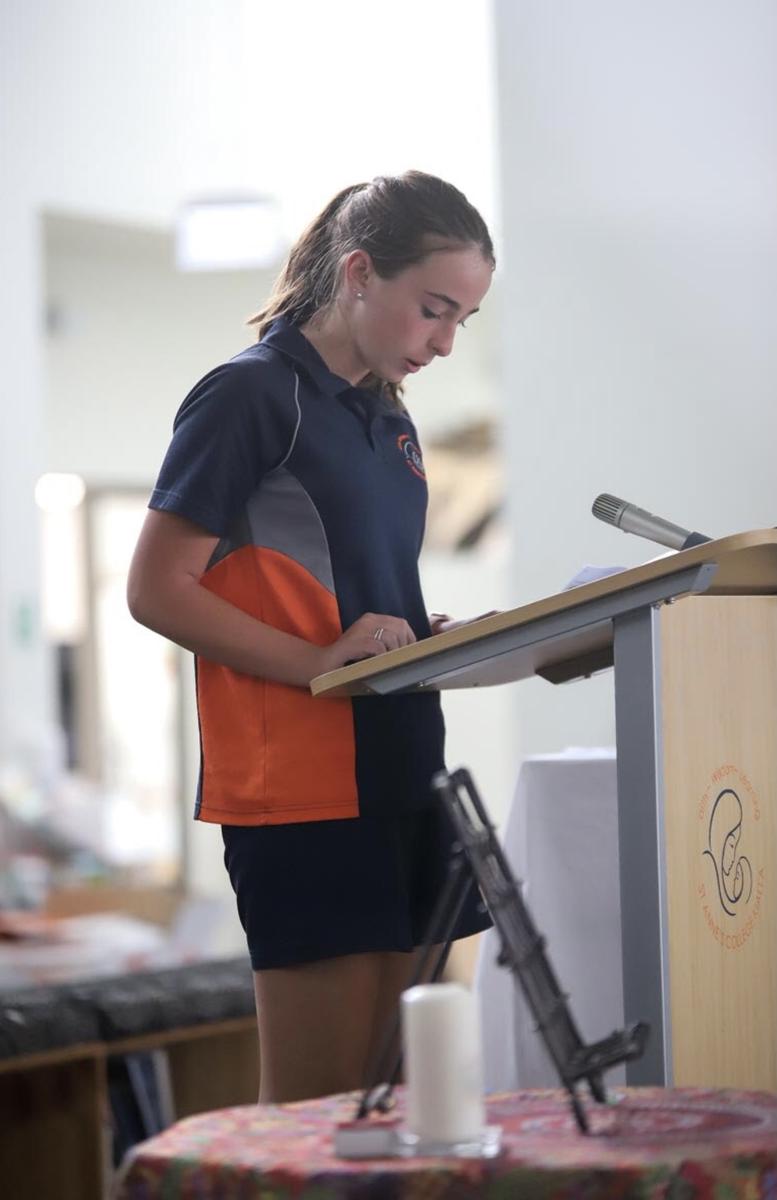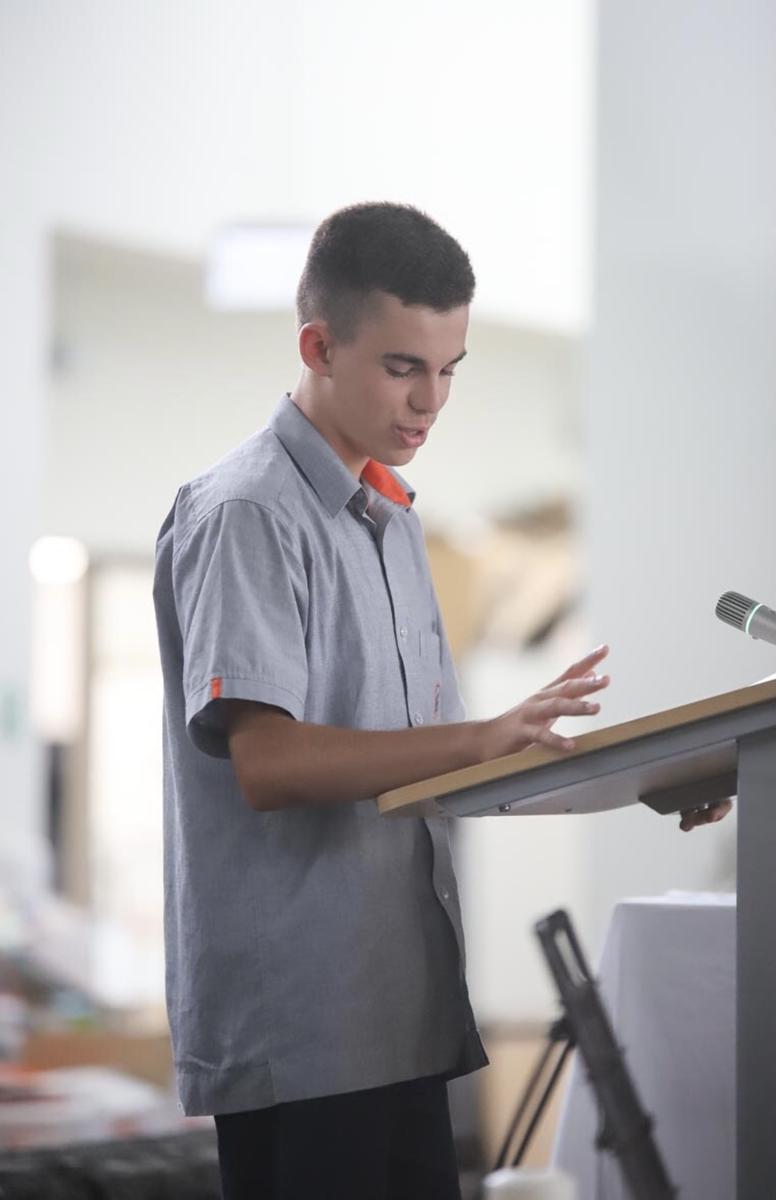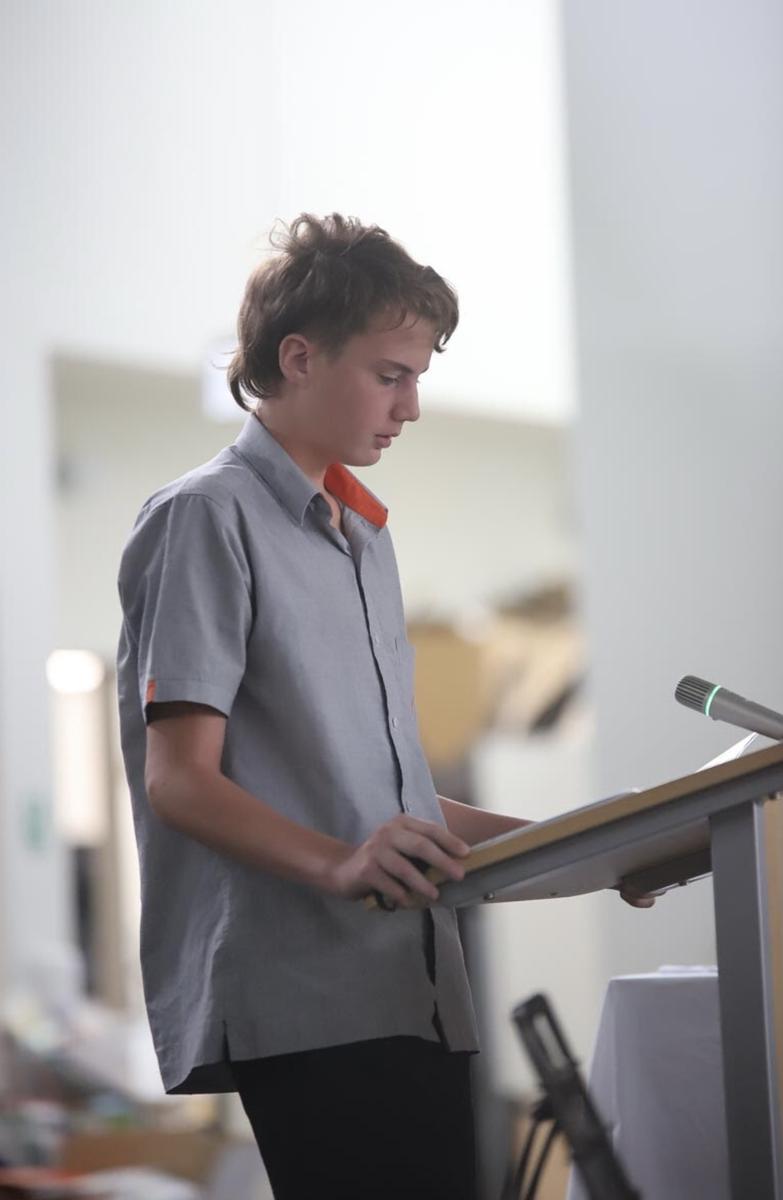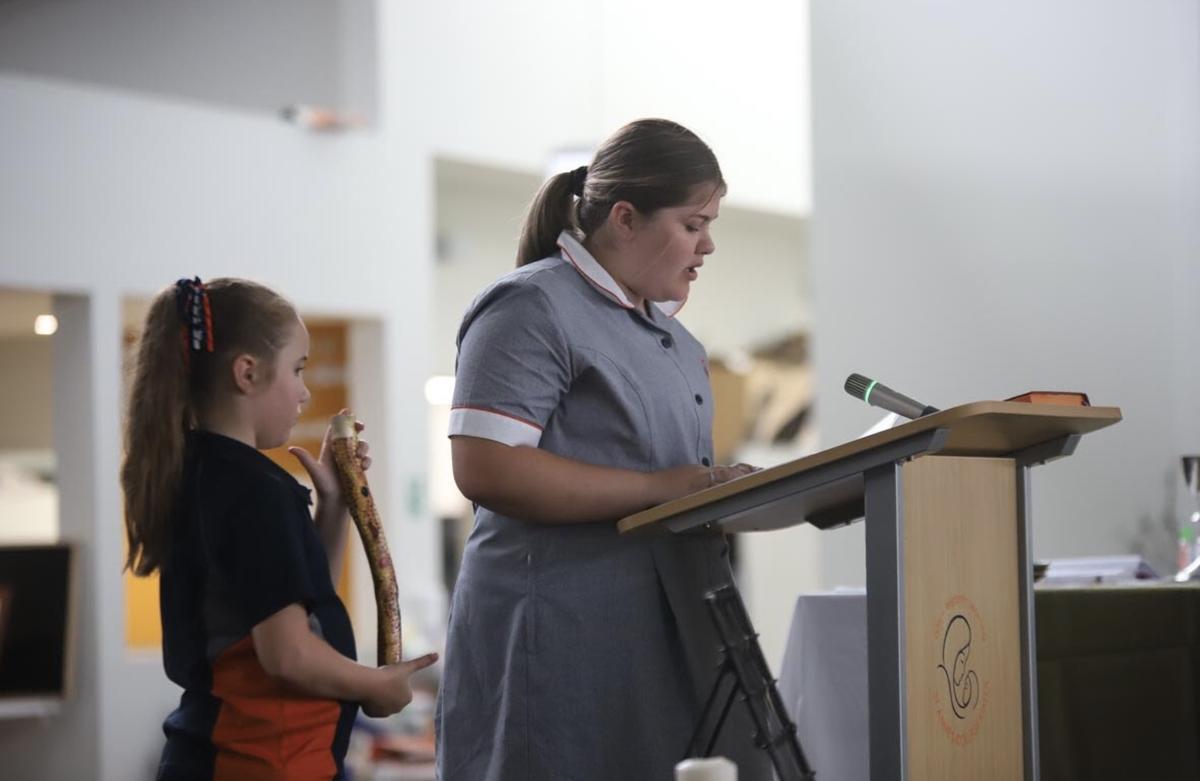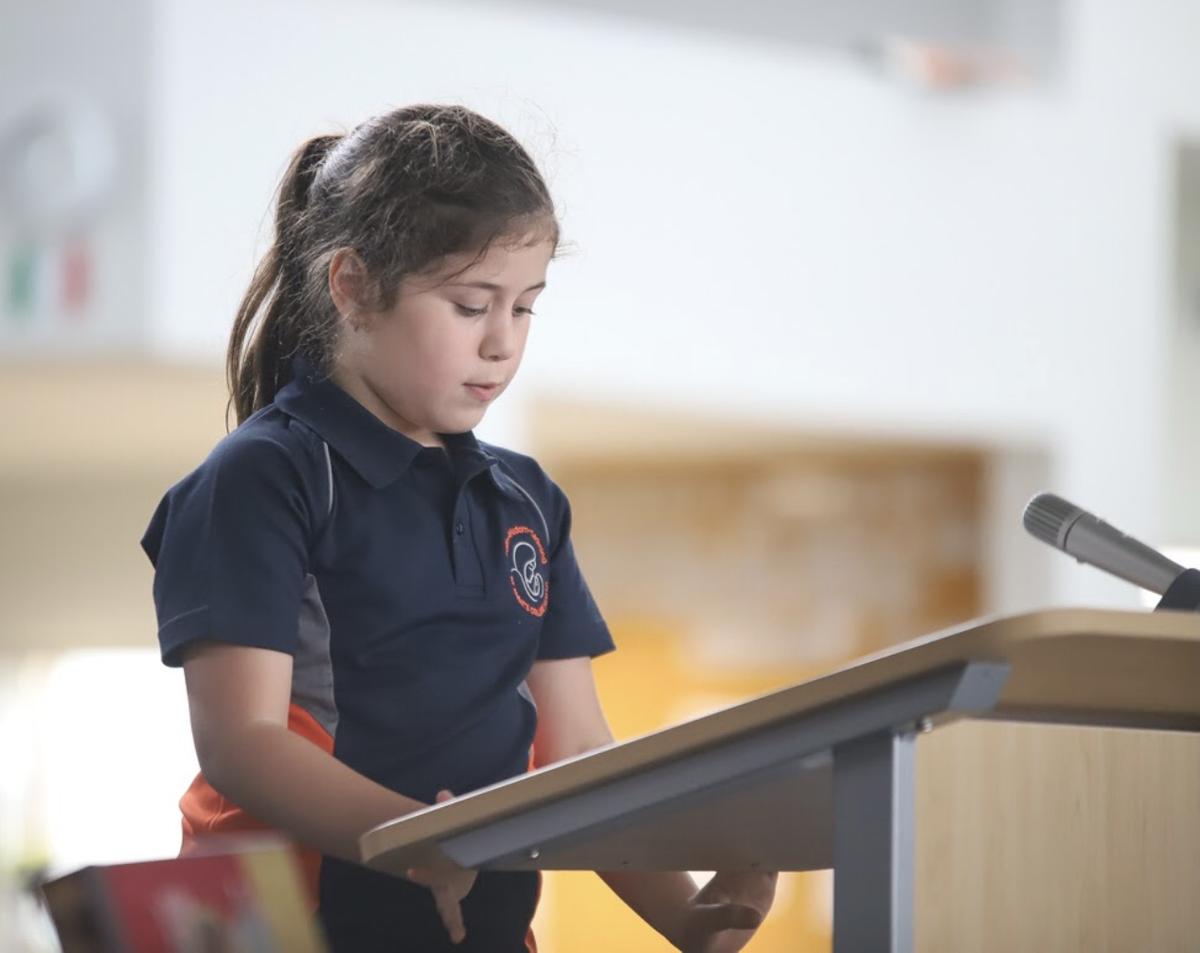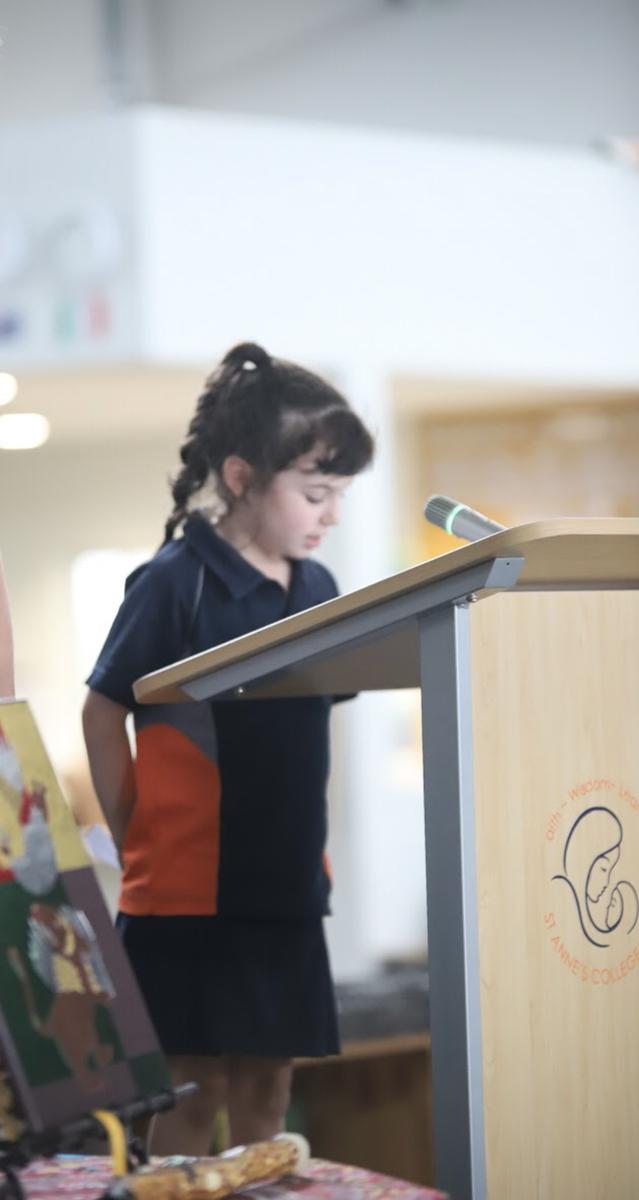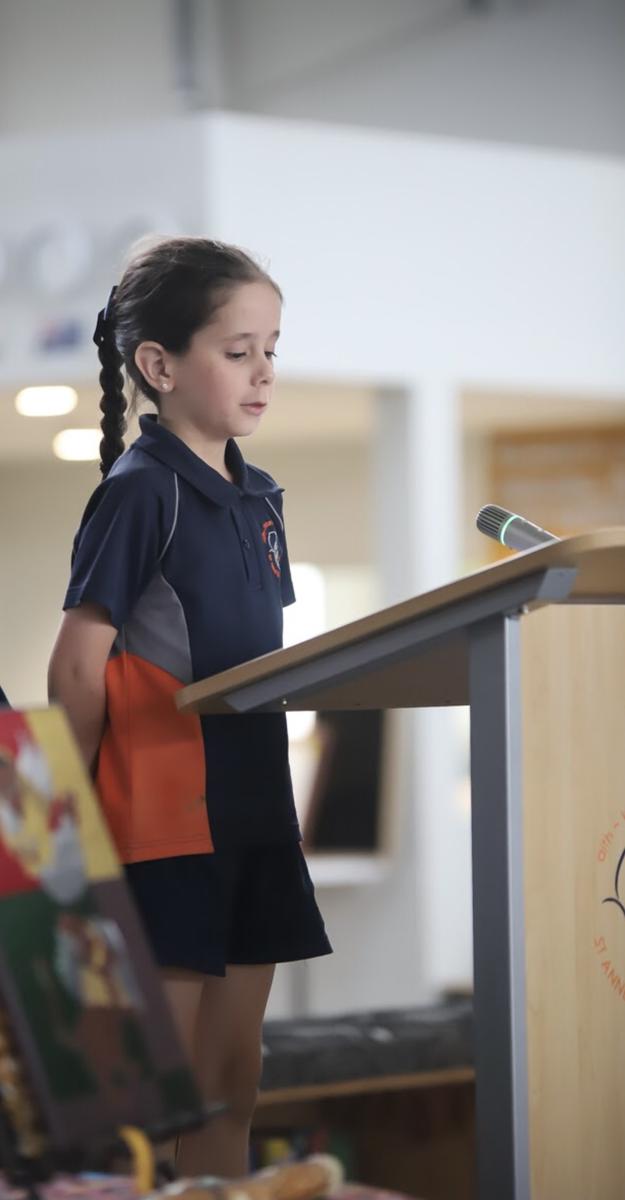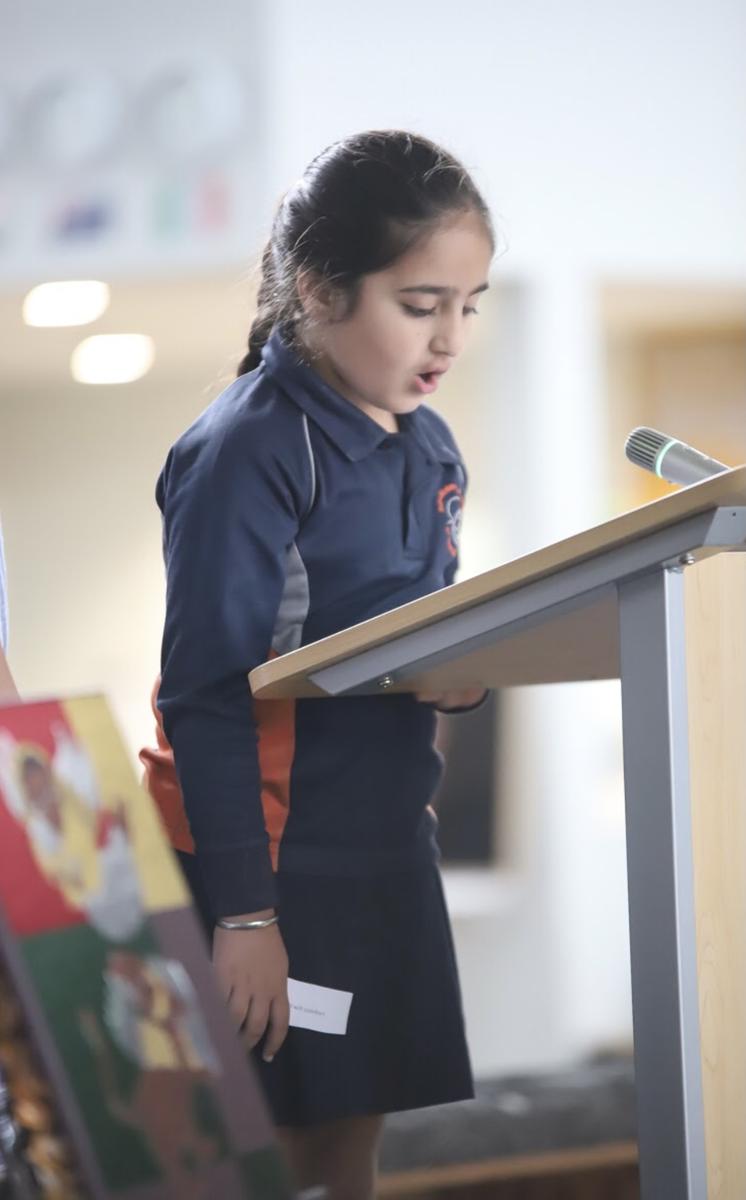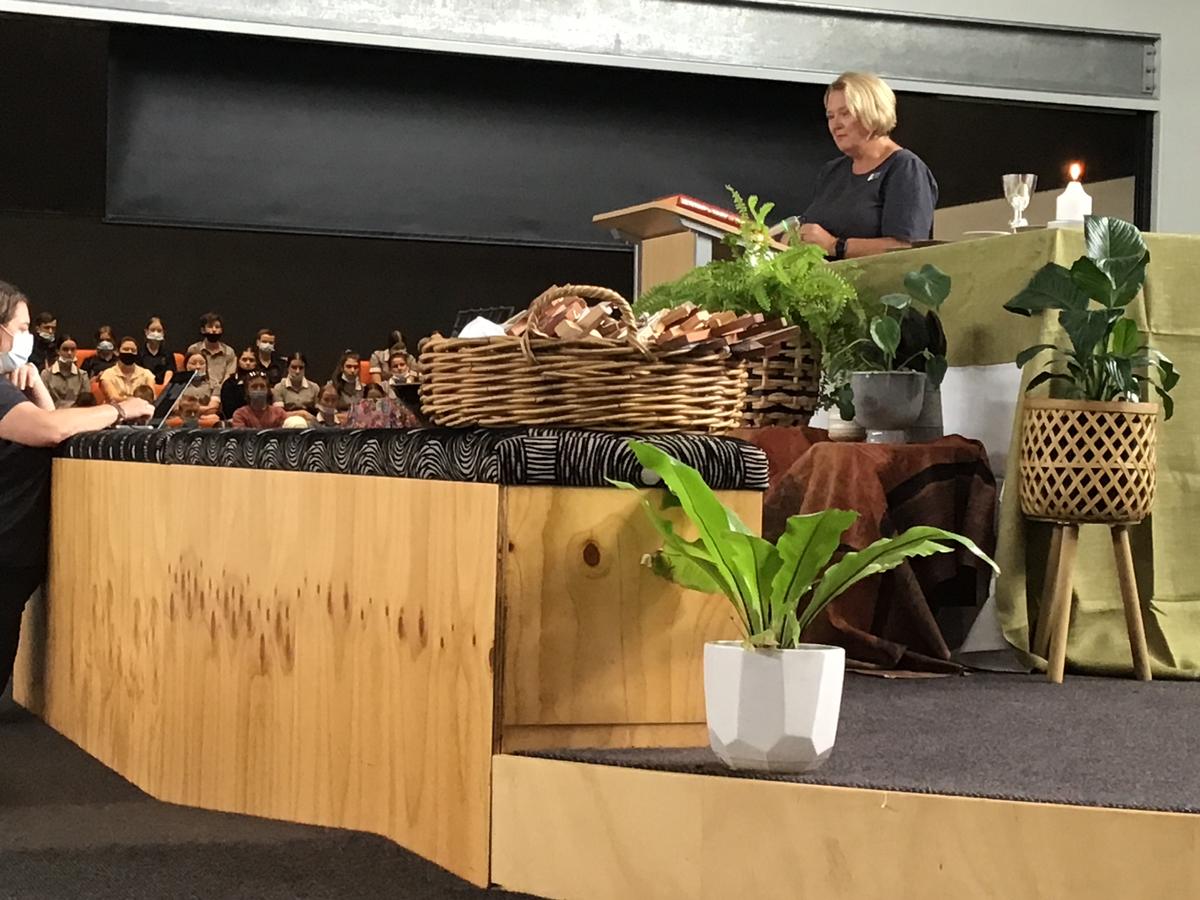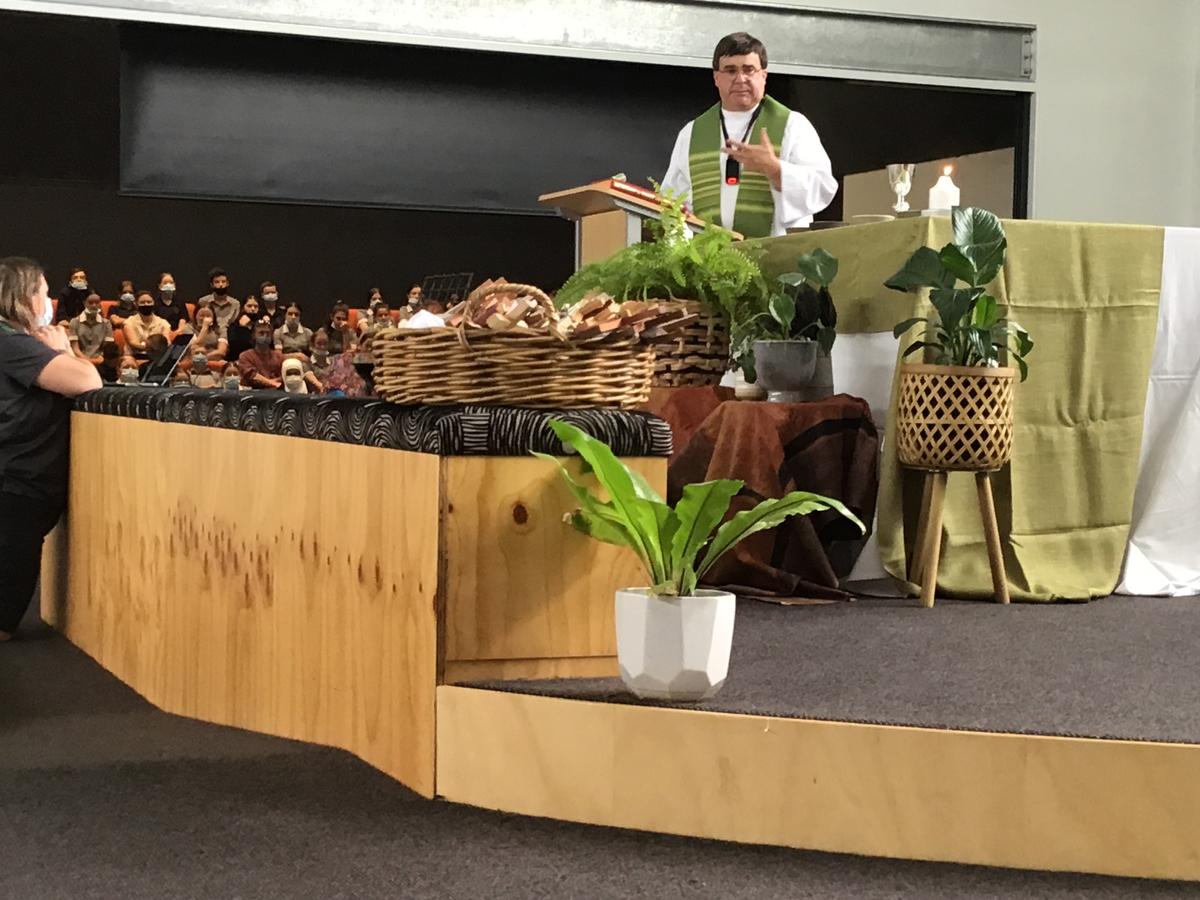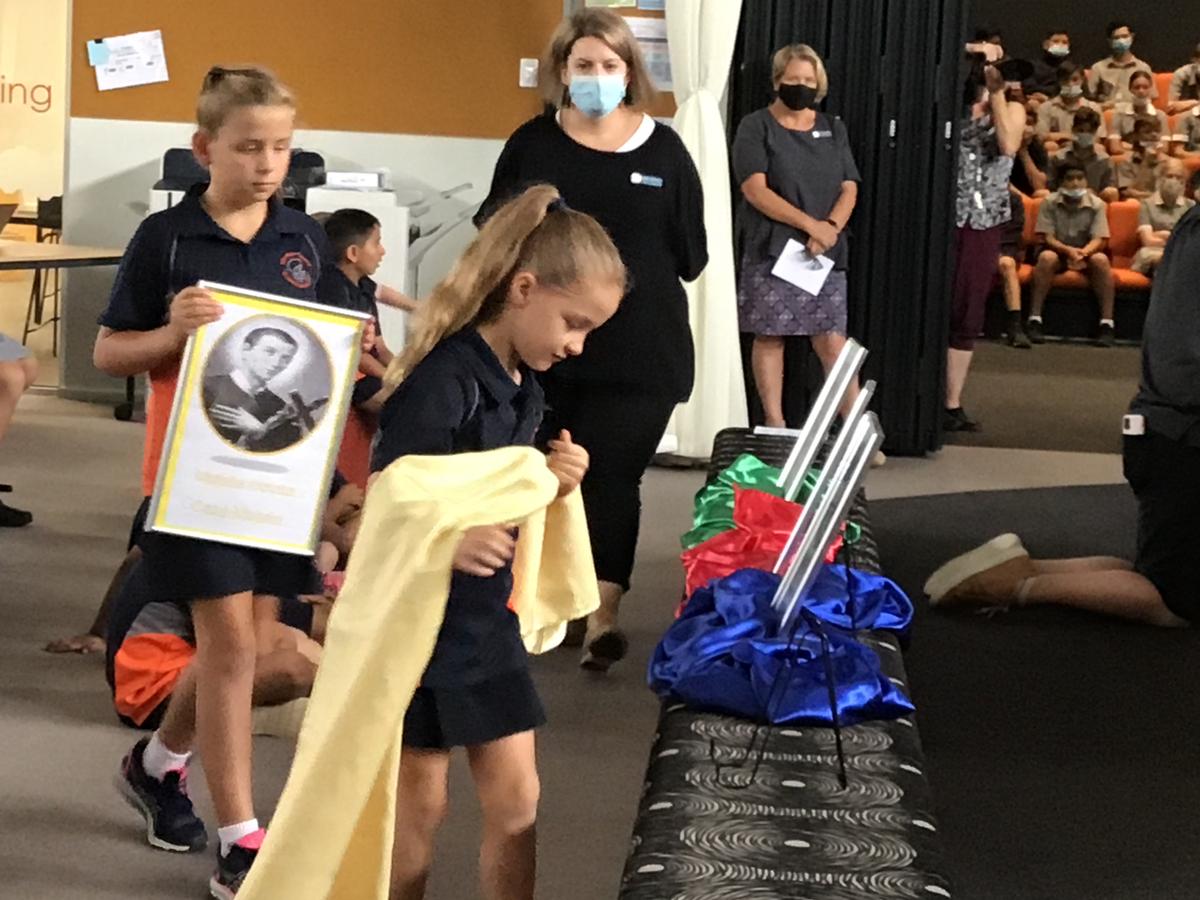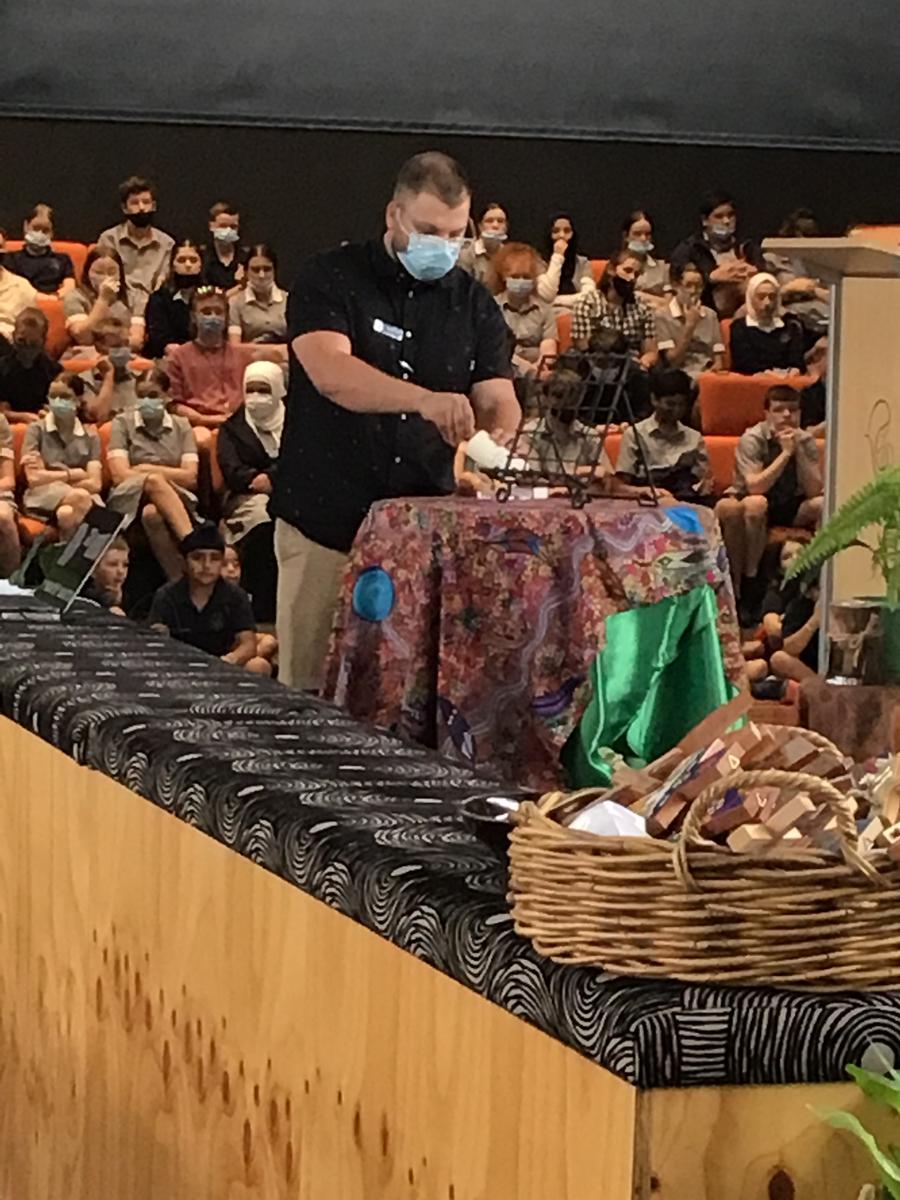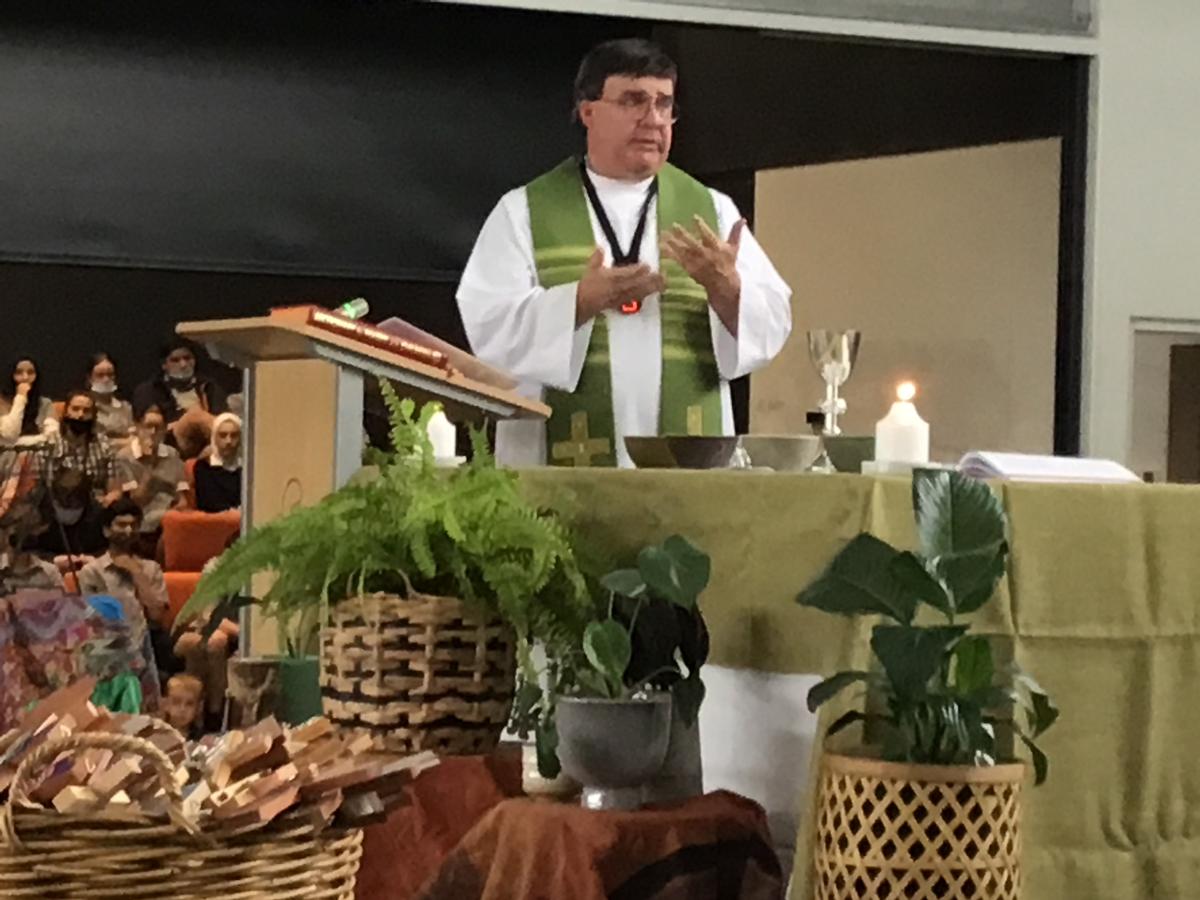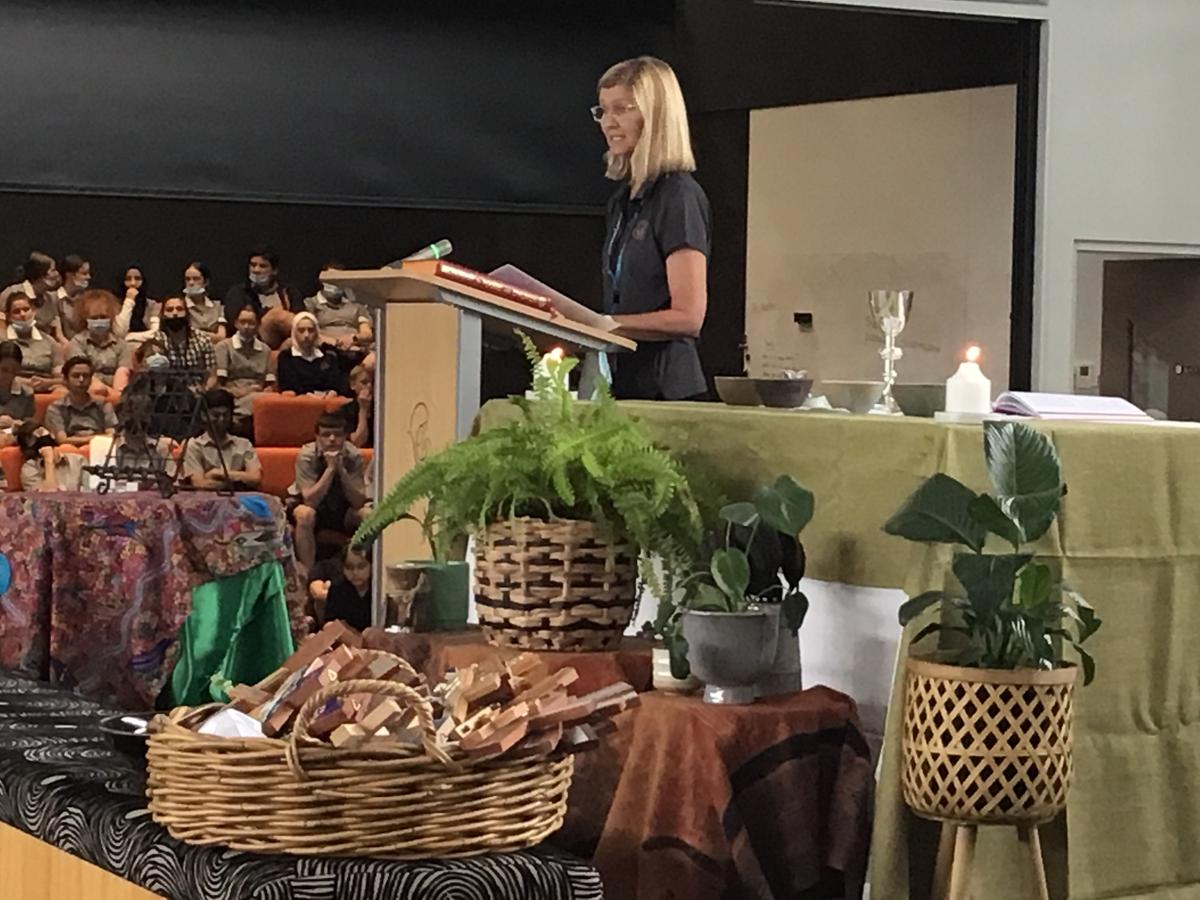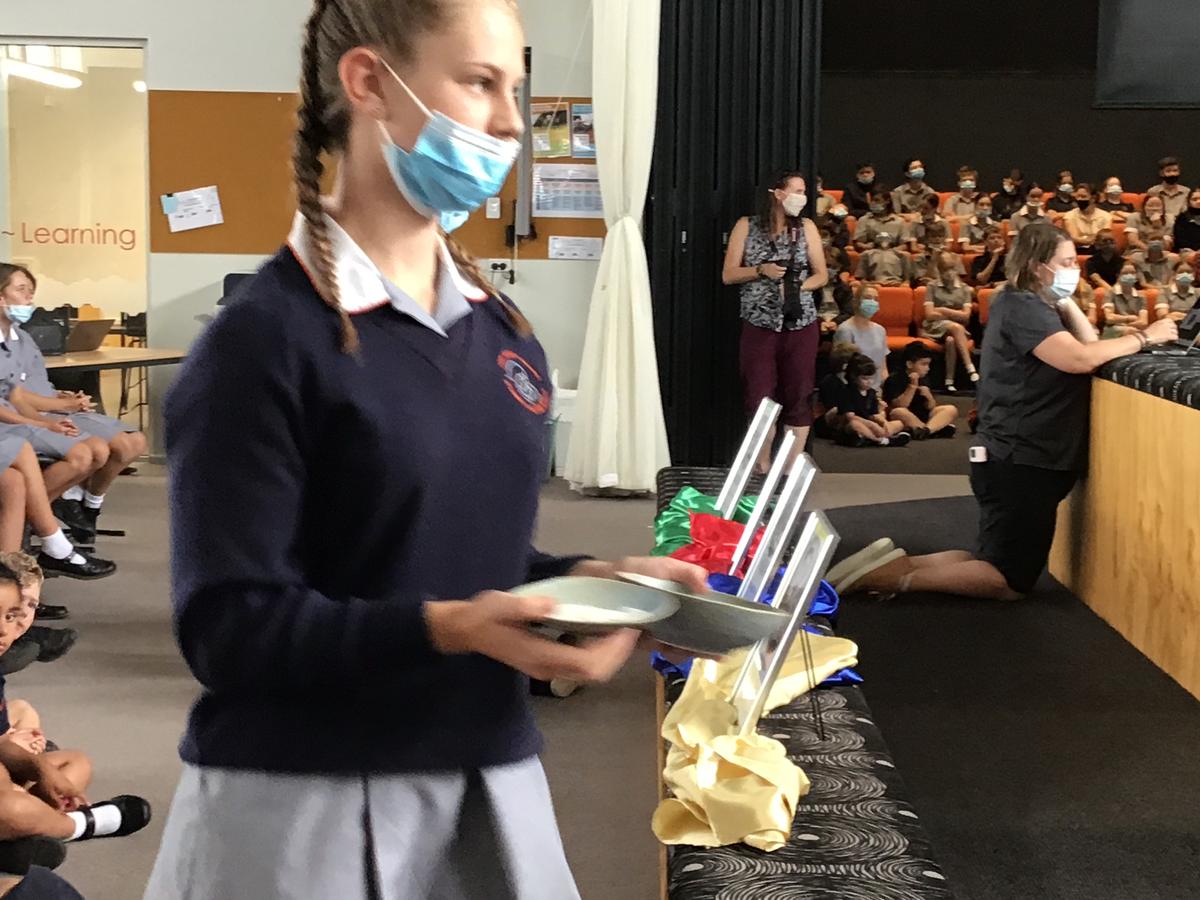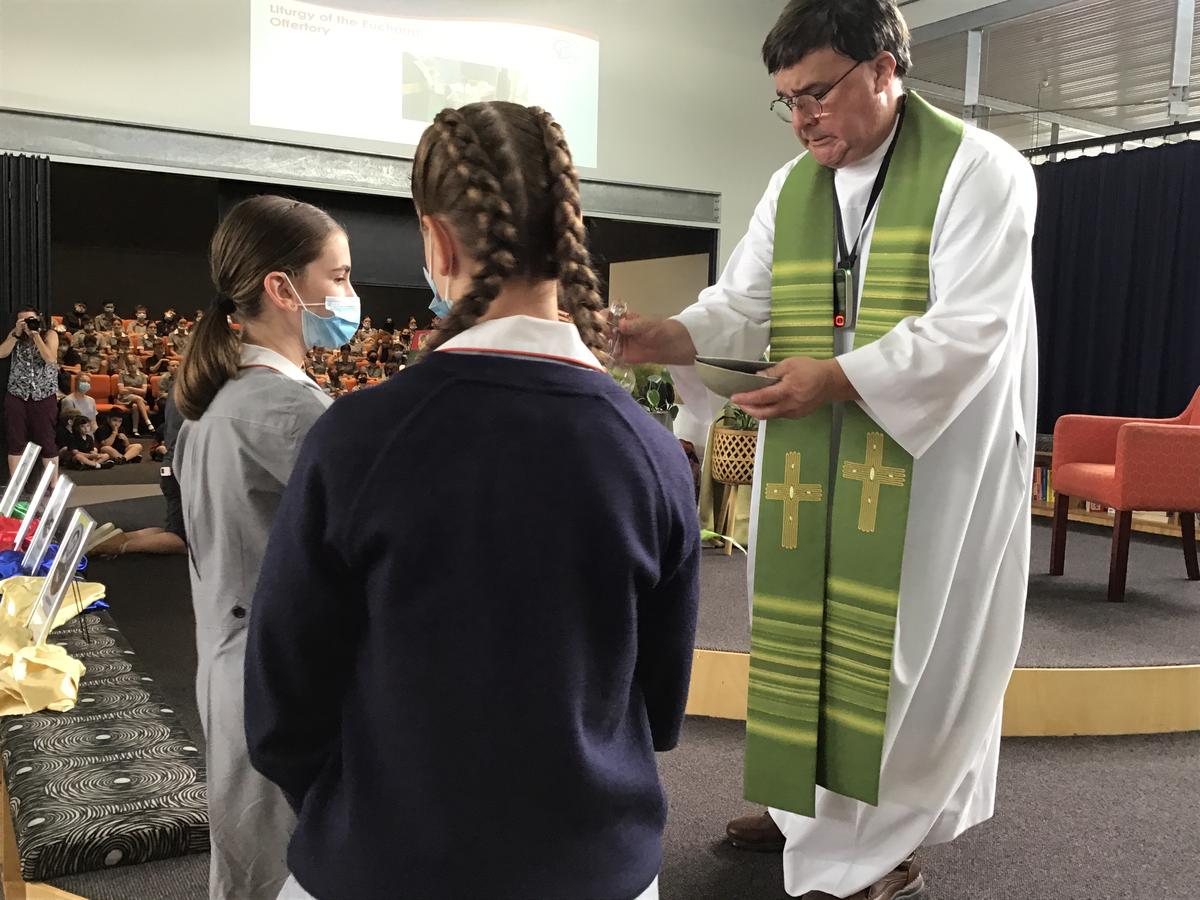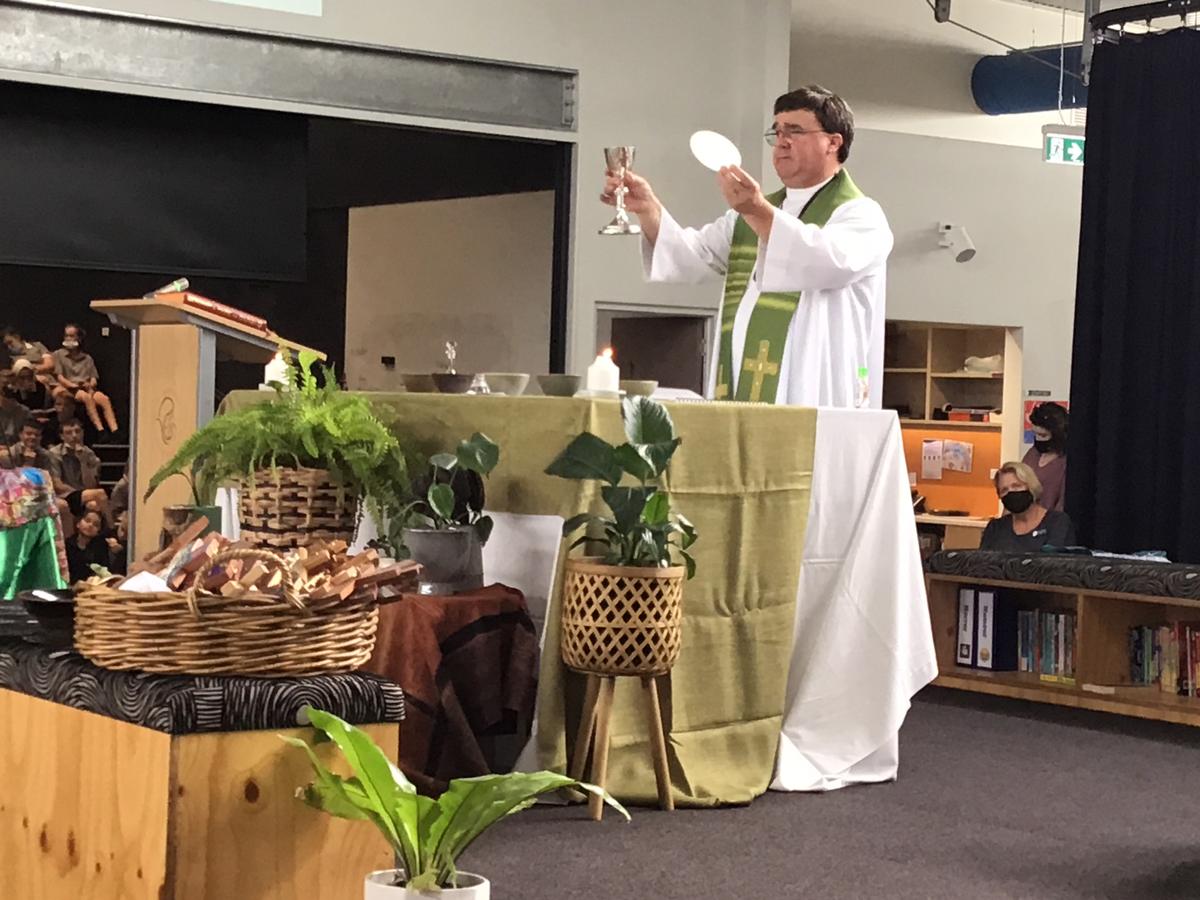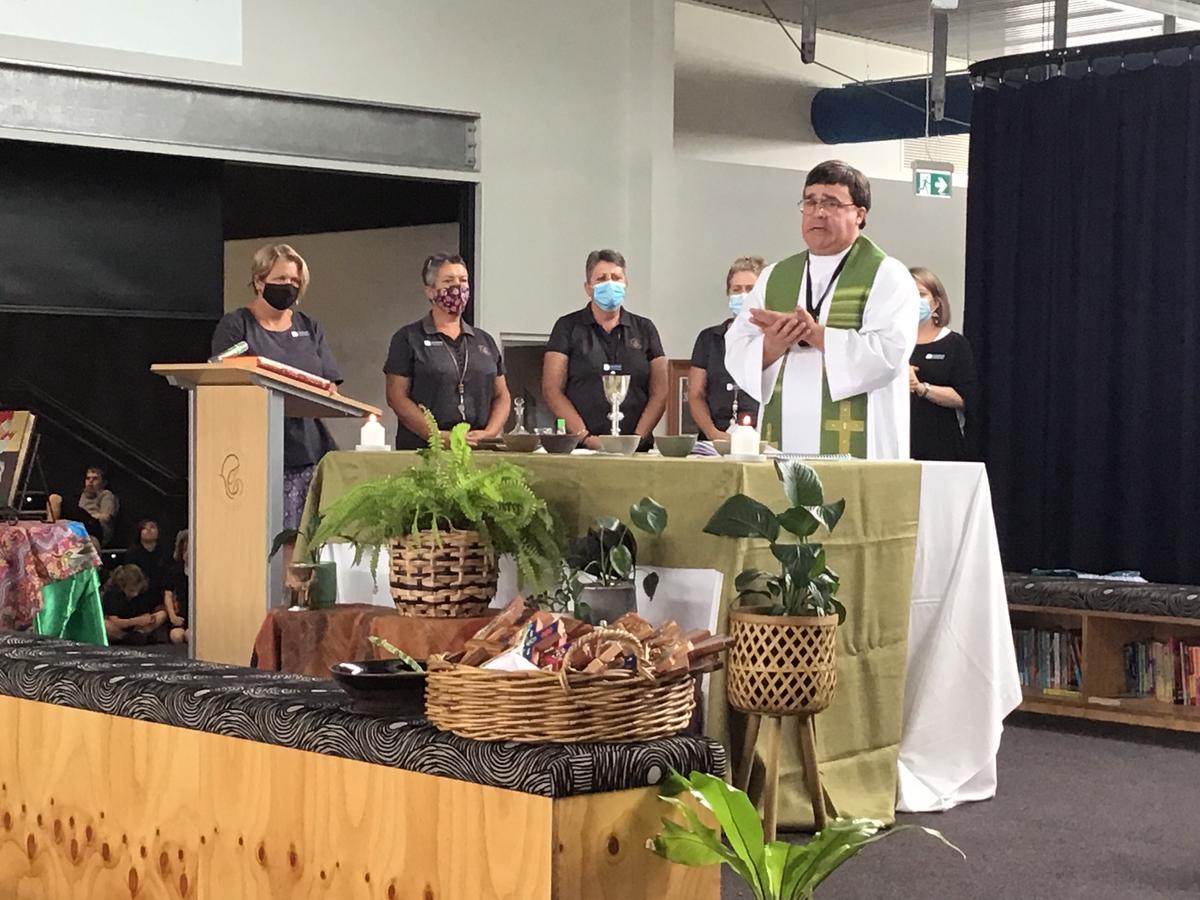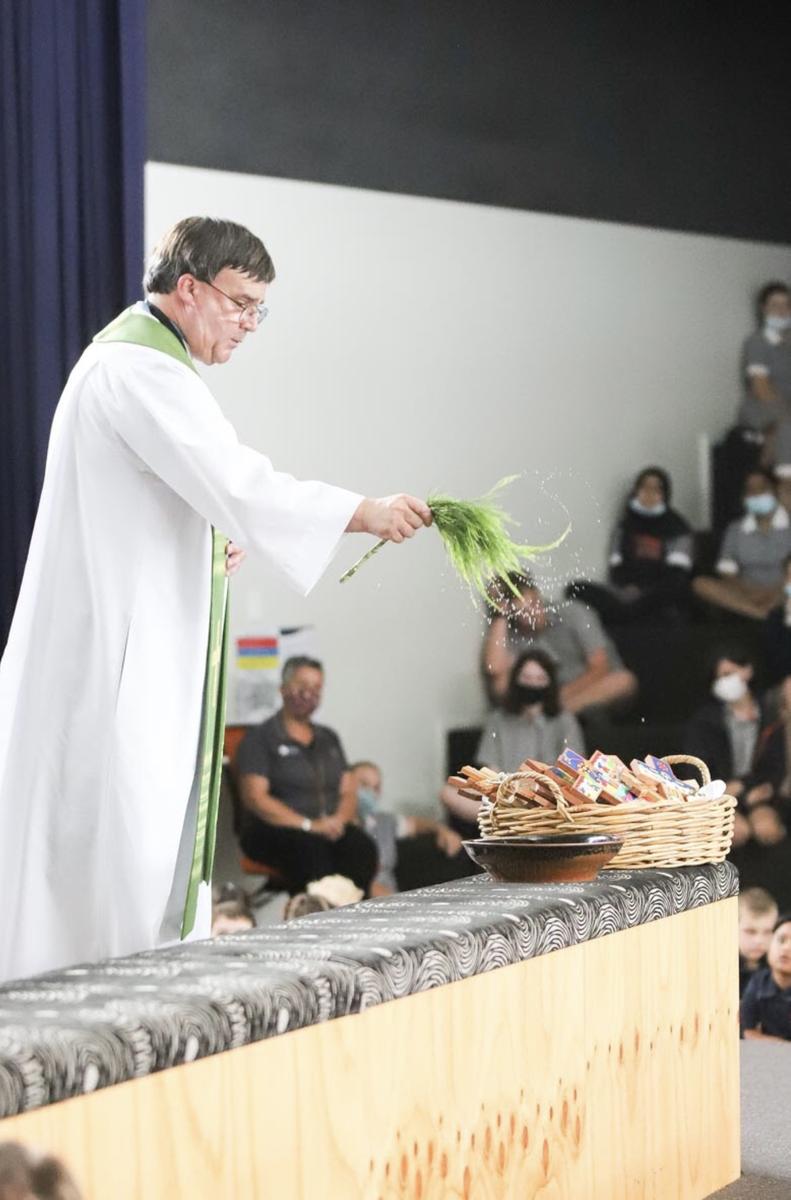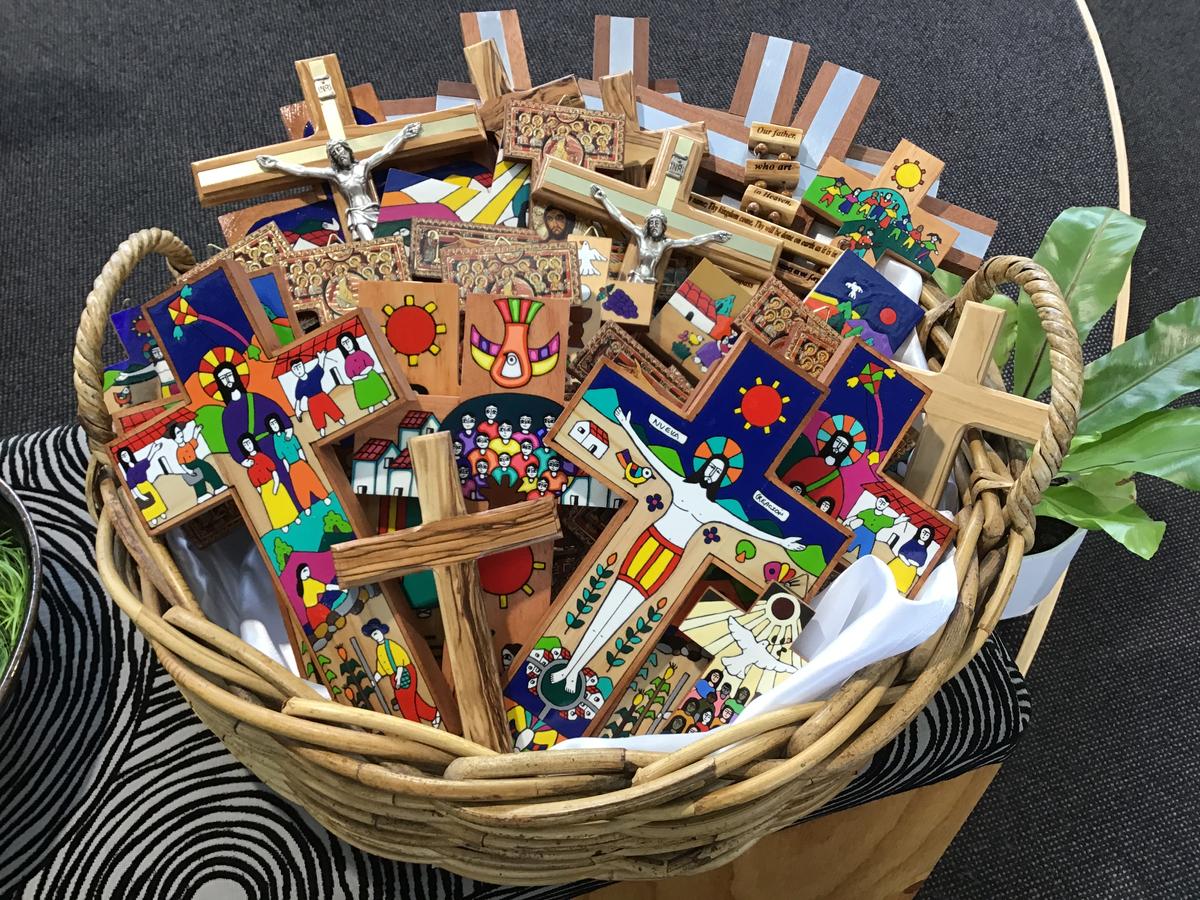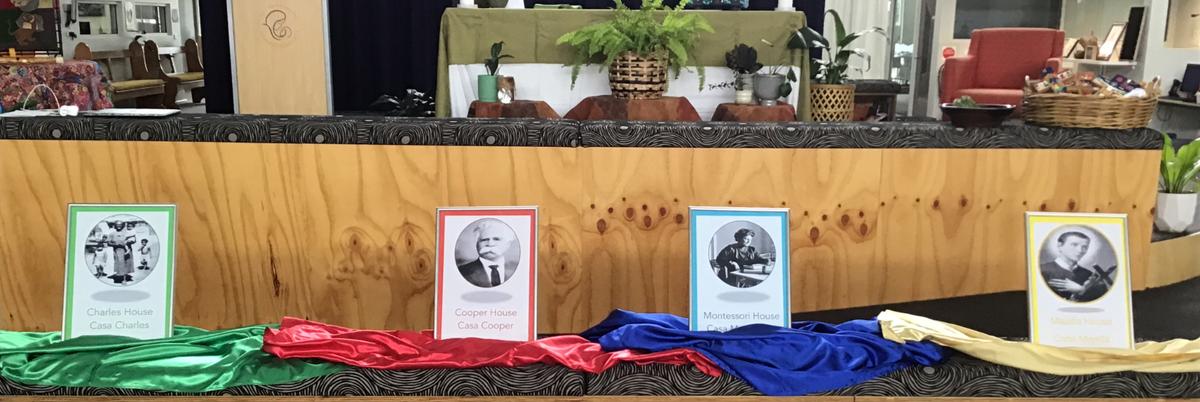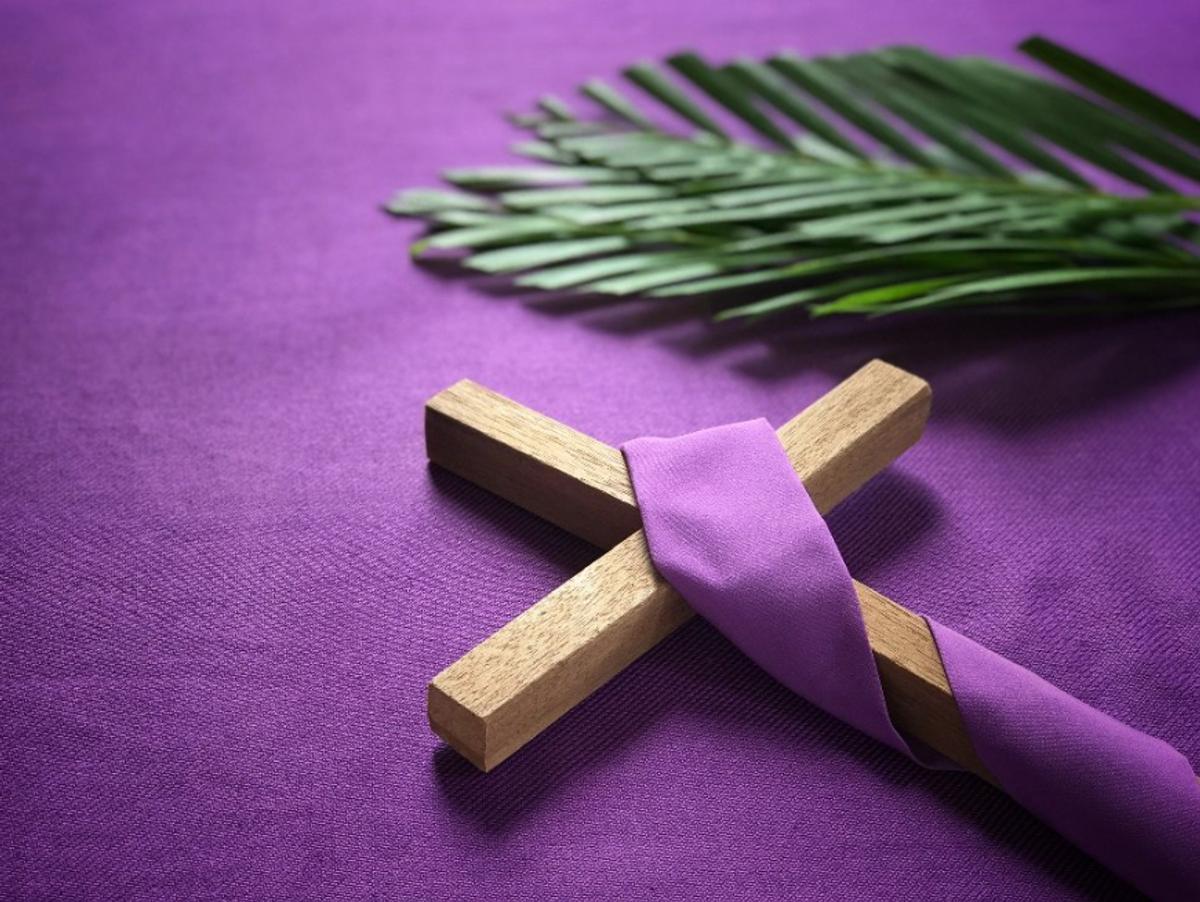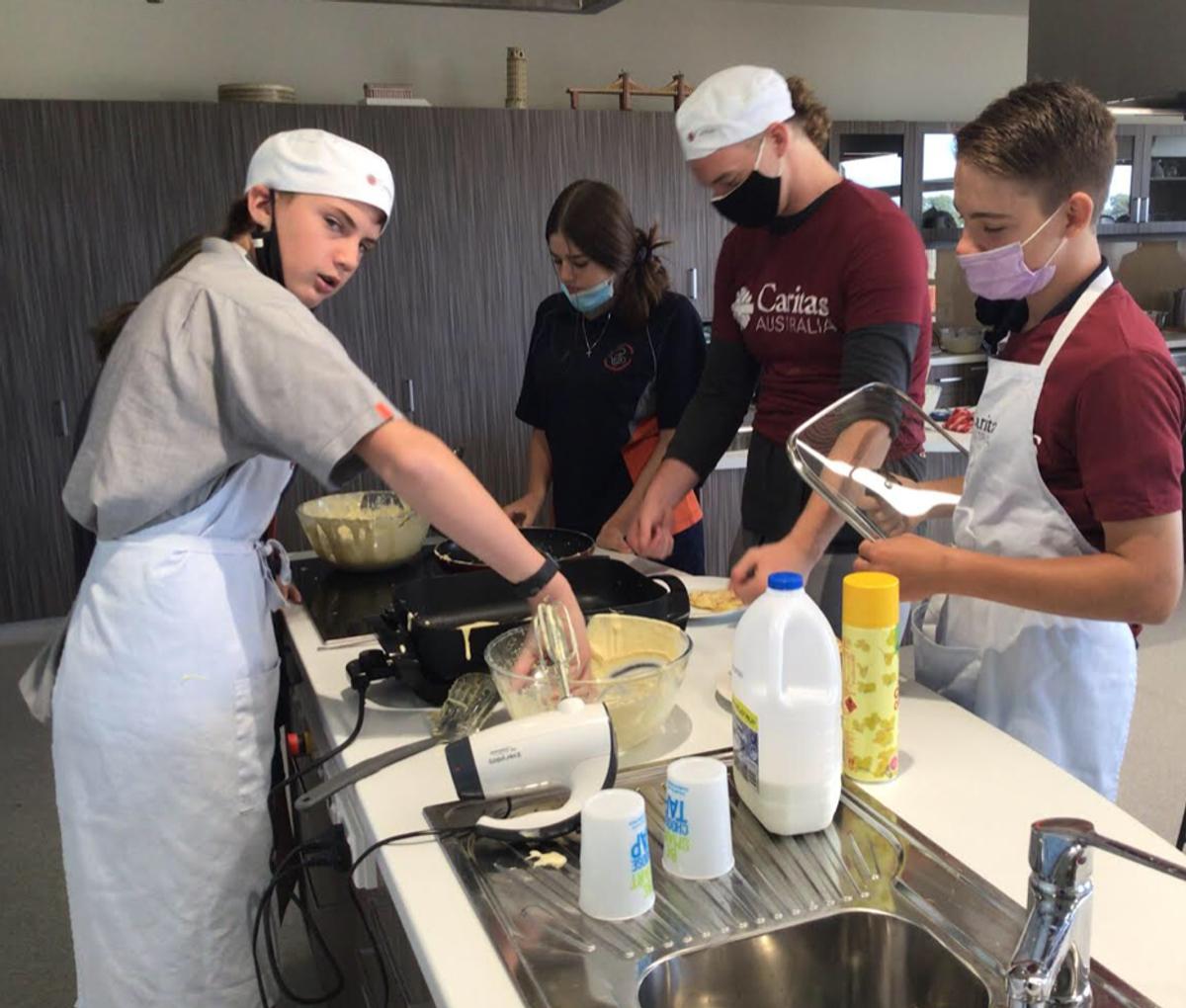Catholic Identity

Opening Mass celebrated with joy and hope
Last Friday, February 12, the college community gathered for our Opening Mass. We were fortunate enough to celebrate the Mass together, on site before the snap lockdown was introduced. There is always a wonderful feeling beginning the year together in prayer and reflection, welcoming our new students and staff, acknowledging country and sharing our college heritage. I'd like to extend a huge thank you to Fr Peter Taylor who is always so supportive and flexible in working together to provide rich experiences of prayer with our community.
Lent
This Sunday we enter the first Sunday of Lent. This is a significant time in our liturgical year. Lent is a liturgical season beginning with Ash Wednesday and ending on Holy Thursday. It includes six Sundays, the five Sundays of Lent plus Palm Sunday of the Passion of the Lord. ‘Lent is a time for reflecting on our lives, for refocusing on God’s love for us, and God’s call to love and serve others, which began with Ash Wednesday. Lent is a time for renewal through prayer, fasting and giving, as we prepare to celebrate the resurrection of Jesus at Easter – the most important feast in the Church’s calendar. Lent provides us with an opportunity to consider how we might help those in need, rather than thinking about ourselves.’ Porreca. K 2015, “Some Sundays in Lent” Good News for Catechists Term 1 pp. 17
The Gospels reveal a God of tenderness and compassion, a God who is lavish in forgiveness and patience. During Lent the “Alleluia “ is not sung. Lent is commonly referred to as a 40-day period but there are actually 46 days from Ash Wednesday to Easter Saturday. It is a time of preparation and prayer leading to the Easter Season. The number "40" has always had special spiritual significance regarding preparation. On Mount Sinai, preparing to receive the Ten Commandments, "Moses stayed there with the Lord for 40 days and 40 nights, without eating any food or drinking any water" (Ex 34:28). Elijah walked "40 days and 40 nights" to the mountain of the Lord, Mount Horeb (another name for Sinai) (I Kgs 19:8). Most importantly, Jesus fasted and prayed for "40 days and 40 nights" in the desert before He began His public ministry (Mt 4:2).Saunders, Rev. William. "History of Lent." Arlington Catholic Herald
During Lent the tradition has been to focus on three key aspects: Prayer; Fasting – (Penance, Sacrifice); and Almsgiving – (self giving). The launching of Caritas Project Compassion fits with all of the above (if the children are encouraged to go without or serve to support their almsgiving). As a college we will have a number of fundraising opportunities for our community to engage in. With current COVID restrictions we will communicate with you what these can be as things develop.
Shrove Tuesday
Shrove Tuesday comes from the custom of ringing the Shriving Bell to summon people to Church to be “shriven”, that is to confess their sins at the beginning of Lent. Shrove Tuesday is the day before Ash Wednesday, which marks the beginning of Lent. At that time certain foods were given up for the duration of Lent. Those foods included egg, milk, meat and rich buttery dishes. So, on Shrove Tuesday they used up these foods. It is from this that the tradition of making pancakes on Shrove Tuesday began. At St Anne’s College, we have a tradition where our community gathers together the morning of Shrove Tuesday to prepare pancake batter to cook pancakes for our community. We enjoy the pancakes and learn about the significance of the day in relation to our Catholic traditions. We prepare ourselves for the beginning of Lent, discussing what Ash Wednesday means, the significance and history of the ashes and the lead-up to Holy Thursday. Unfortunately due to COVID restrictions and students returning to distance learning we were unable to participate in this occasion, but it was wonderful to see many students preparing pancakes at home for their families. We've included a recipe for you to use if you'd like to make some this weekend.
Pancake Recipe
Ingredients
2 cups of self-raising flour, sifted
½ cup of sugar
Pinch of salt
2 eggs
Milk to mix
Method
Combine all ingredients together in a bowl, using a whisk to ensure there are no lumps. Heat a saucepan to medium heat and use a little butter to grease the pan. Pour batter into the pan. Once the batter has formed bubbles which have burst, flip pancakes over. Once both sides are golden, remove pancakes from pan and serve with desired toppings.
Ash Wednesday
Ash Wednesday is the first day of Lent. What do the ashes mean? During the Liturgy ashes are placed on our foreheads in the shape of the cross. The ashes for Ash Wednesday normally are made from blessed palm branches from the previous Palm Sunday. The ashes are sprinkled with Holy Water and incensed before distribution. Ashes are a symbol of penance – in the Early Church they wore sackcloth and ashes when they were performing public penance. Ashes are also a reminder that life passes away on earth. Unfortunately we were unable to hold our Ash Wednesday Liturgy on site this year but students and staff were welcomed to attend the St Mel's Parish service via Zoom.
Keep an eye out over the coming week for more information about the college's fundraising for Project Compassion. This year the theme is 'Be More'. It challenges us to venture into new experiences of compassion, and is taken from the invitation of Saint Oscar Romero, to 'Aspire not to have more but to be more.' This message invites us to step up and step out for those who do not have the essential resources they need for their survival; those whose needs at this time are far beyond ours.
- Ebony Anderson, Catholic Identity Leader

